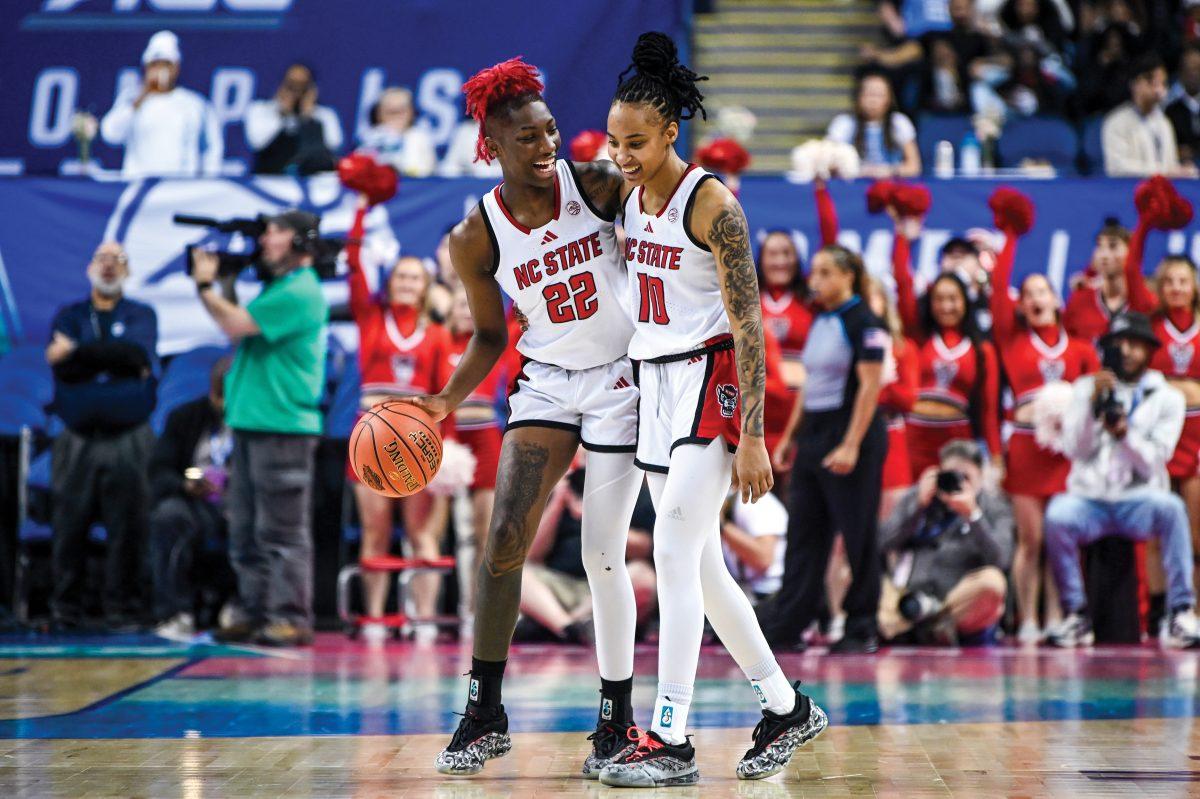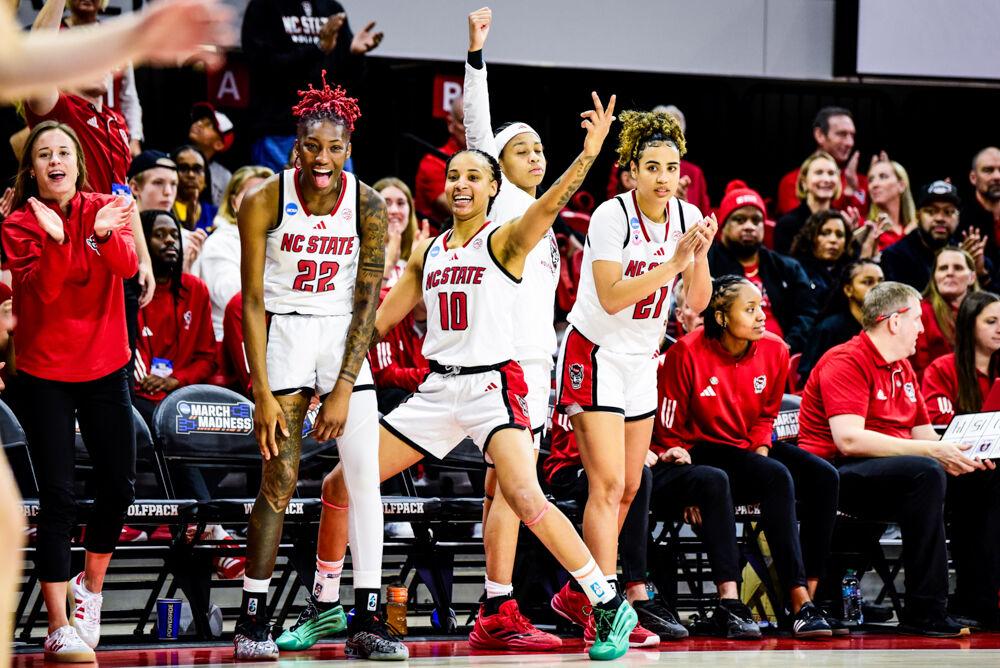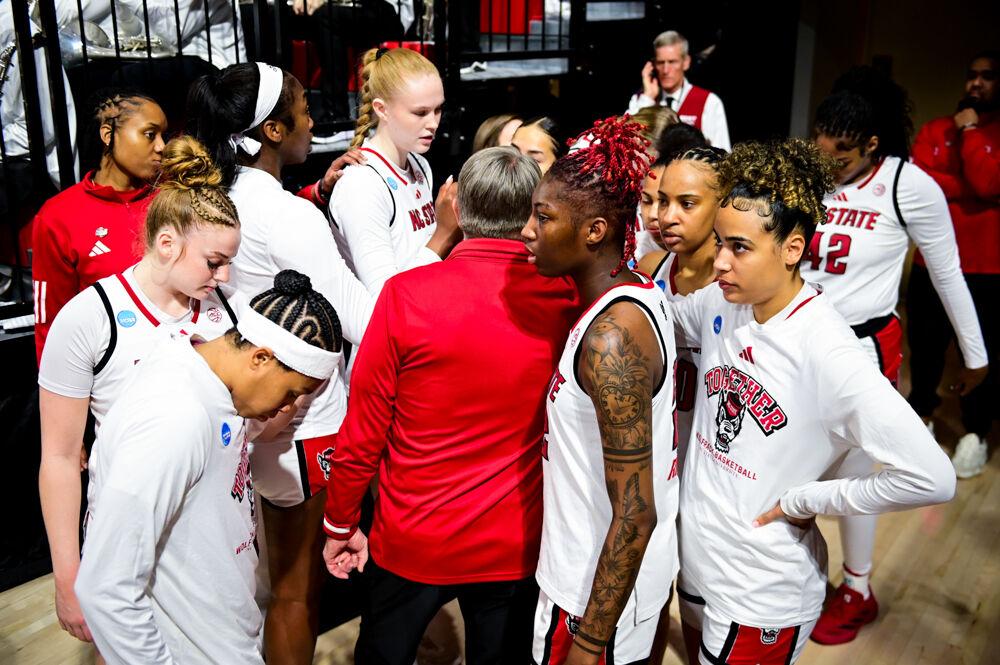Despite a big bounce-back year for the NC State women’s basketball team, it failed to make the NCAA Tournament, being listed among the first four out of the tournament field.
The Wolfpack finished with a 20-11 (10-6 ACC) record this year, which was good for sixth in the ACC, arguably the toughest conference in women’s basketball, including a 7-1 record in January, all against ACC teams. Additionally, despite a three-game conference improvement from last season, NC State will not compete in the Women’s National Invitation Tournament (WNIT) because it had to apply for eligibility before the NCAA Tournament bracket was announced and did not do so.
One of the knocks on the Pack is that it didn’t beat any of the teams it faced that are currently in the tournament, though it finished within five points against four of the seven teams it faced that are tournament-bound. Those four losses piled up, and if it had turned its fortunes in merely one of those games, NC State would likely be dancing.
Another knock is three of its losses came to teams outside the top 90 in Rating Percentage Index (RPI) (Elon at 92, Nebraska at 93, Wake Forest at 144). NC State won only one game against a top-50 RPI team (Duke at 47).
When arguing for one team to make a tournament, you obviously have to point out why it deserves a spot over a team currently in a tournament. There are a handful of teams that NC State arguably should have made the tournament over, including Kansas State, Purdue and Auburn.
Let’s start with Kansas State, who is slotted as a No. 9 seed. The Wildcats posted an 18-12 (8-10 Big 12) record, good for sixth in its conference. The only advantages they have over the Pack are one signature win over Oklahoma and a higher rank on the RPI scale (Kansas State is at 48, NC State is at 49). Otherwise, a team with a losing conference record should not be selected to the NCAA Tournament, regardless of the conference.
Purdue is a No. 11 seed after earning a 20-11 (10-8 Big Ten) record, and was among the last four in the tournament after also placing sixth in its conference same overall record, but two more conference losses than the Wolfpack. Additionally it ranks at 66 in the RPI, 17 slots lower than the Pack. However, like the Wildcats, the Boilermakers have one thing over NC State: a signature win against a tournament team. This one being a two-point victory against No. 8 Louisville, whom the Pack lost to by two points.
Auburn placed eighth in the SEC with a 19-12 (8-8 SEC) record, good for a No. 9 seed in the tournament. The Tigers had fewer overall conference wins than the Pack, as well as a 57 RPI (eight below NC State). However, Auburn has one advantage, and it’s the same as Kansas State and Purdue: signature wins. The Tigers beat No. 12 Kentucky and No. 25 Florida in home matchups that not only put the team at .500 in the conference, but strengthened its resume astronomically.
While the Pack could’ve replaced any of these teams without anyone batting an eyelash, that isn’t the only reason it didn’t make the tournament.
In addition to the field of 64, the men’s NCAA Tournament offers four play-in games. This not only expands the field by four, but allows teams a chance to fight their way into the tournament. This acts as a buffer, in case the selection committee makes a mistake in picking the last few teams that make the Big Dance.
The women’s NCAA Tournament doesn’t have this, and there’s really no reason why it shouldn’t since the men’s tournament does. If it did, theoretically speaking, since the Wolfpack was among the first four out, increasing the field to 68 would’ve made it among the last four in and given it a chance to play into the 64-team field, just like the men’s team did two years ago.
At the end of the day, the NCAA Tournament selection committee should ask itself two questions. One, should signature wins carry that much weight, especially if a team only has one? And two, should the selection commitee change the rules to match the men’s tournament, allowing four extra teams the chance to play their way into the tournament? All things aside, these were the two biggest reasons NC State didn’t make the NCAA Tournament, and it had its season ended prematurely as a result.














